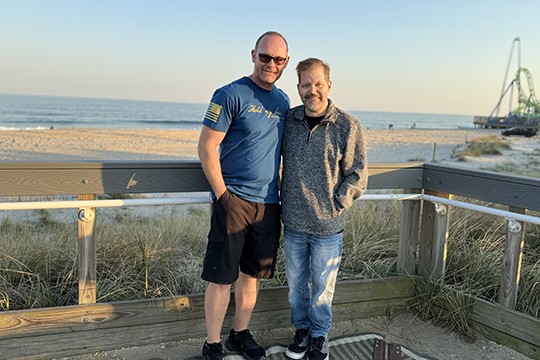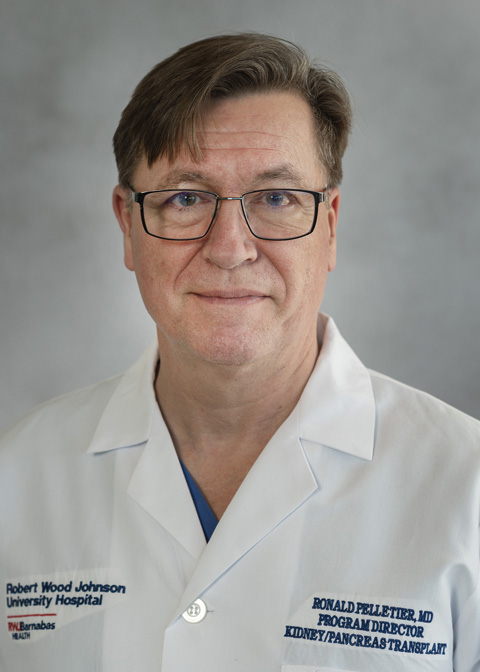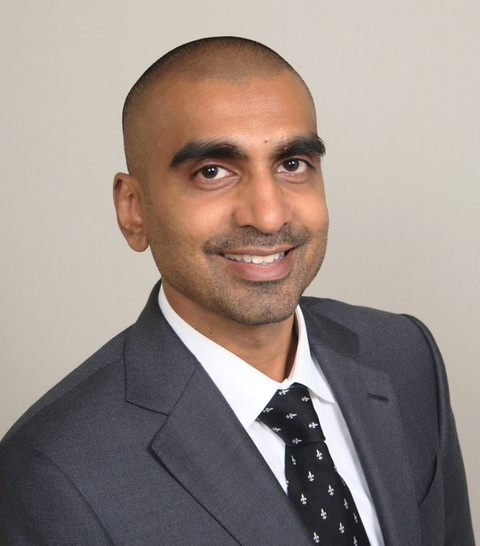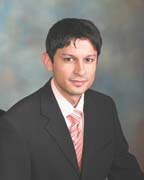"I tell him he’s Superman and he can do no wrong,” Brian says. "It’s such a great gesture that it’s hard to put into words and say something that would do it justice."

Two Brothers Strengthen Their Connection Through the Transplant of a Donated Kidney
As a firefighter in El Mirage, Arizona, Corey Lydell risks his life to help others every day. So, when his half-brother, Brian, desperately needed a kidney transplant in New Jersey, Corey didn’t hesitate to act.
“I asked him repeatedly, ‘Are you sure you want to do this?’” Brian recalls. “He said, ‘Absolutely. As a firefighter I put my life on the line for total strangers every day. It would be silly not to do it for my brother.’”
They now share an unbreakable bond through what is often called the ultimate gift.

The half-brothers learned that they may be a match for a living-donor transplant when Brian shared his story with his father and stepmother, who live in Arizona along with Corey.
“When I told them that I needed a kidney and that I was an O-negative blood type, they said, ‘We have plenty of O-negative over here,’” Brian says. “I didn’t want to ask them or anyone for a kidney, but the next day, Corey calls and says that he wants to donate.”
The Road to Kidney Failure
The transplant marked the end of a long, difficult journey for Brian. For most of his adult life, he suffered from the effects of ankylosing spondylitis, an inflammatory arthritis that severely affected large joints throughout his body and required multiple joint replacement surgeries.

One tumor was close to the renal artery and considered unstable, so surgeons were unable to remove it and the kidney could not be saved. “After surgery, I was fine, but the problem was that my other kidney wasn’t quite waking up,” Brian says.
Brian remained under the care of Sandesh Jain, MD, a nephrologist affiliated with RWJUH in New Brunswick and RWJUH Somerset, who monitored his kidney function closely. The kidney functioned well enough for Brian to avoid dialysis for almost a year. But one day, everything changed.
“I was driving to work and felt like I wanted to die, I felt so ill instantly,” he recalls. “I shook it off in 10 minutes, but I had never felt that way before.”

Brian’s lone functioning kidney was beginning to fail. “It was a very slow decline, but I would have bouts of fogginess and just not feeling right,” Brian says. “Dr. Jain became concerned that I was the type of person who would just keep fighting through this, and then one day, my body would just stop. He recommended that I go on dialysis.”
A Living Gift
Once on dialysis, Brian also began the evaluation process for a kidney transplant. The RWJUH team felt he stood a greater chance of finding a match faster if he considered a living-donor kidney.
People who have kidney failure are encouraged to seek living donors for a kidney transplant because:
- Recipients bypass the wait for a deceased donor kidney and receive a kidney faster.
- Dialysis takes a toll on the heart. Receiving a kidney from a living donor can reduce the risk of cardiac complications.
- A living donor's kidney is less likely to be rejected by the recipient’s immune system than a kidney from a deceased donor.
- Recipients of kidneys from living donors have notably higher success rates and shorter hospital stays, and require less immunosuppression than those who receive kidneys from deceased donors.
- Kidney donation surgery is generally done laparoscopically.
Before donating, Corey talked to a friend who had donated a kidney to his mother and learned about the benefits of living donation.
“It’s family, and I wanted to see Brian have a normal, healthy life so he could be there for his wife and children,” Corey says. “Seeing him get healthy and back to normal—being able to enjoy family time like Thanksgiving dinner again—makes it all worth it.”
It’s difficult for Brian to put into words what Corey’s selfless act means to him.
“I tell him he’s Superman and he can do no wrong,” Brian says. “It’s such a great gesture that it’s hard to put into words and say something that would do it justice. Corey is very low-key. To him, it’s probably enough that he had the satisfaction of seeing me get better. Now, I have to do everything I can to keep this kidney healthy as long as possible. I’m very aware of the sacrifice he made and I want to make sure that it is honored.”
Learn more about Transplants at RWJBarnabas Health.